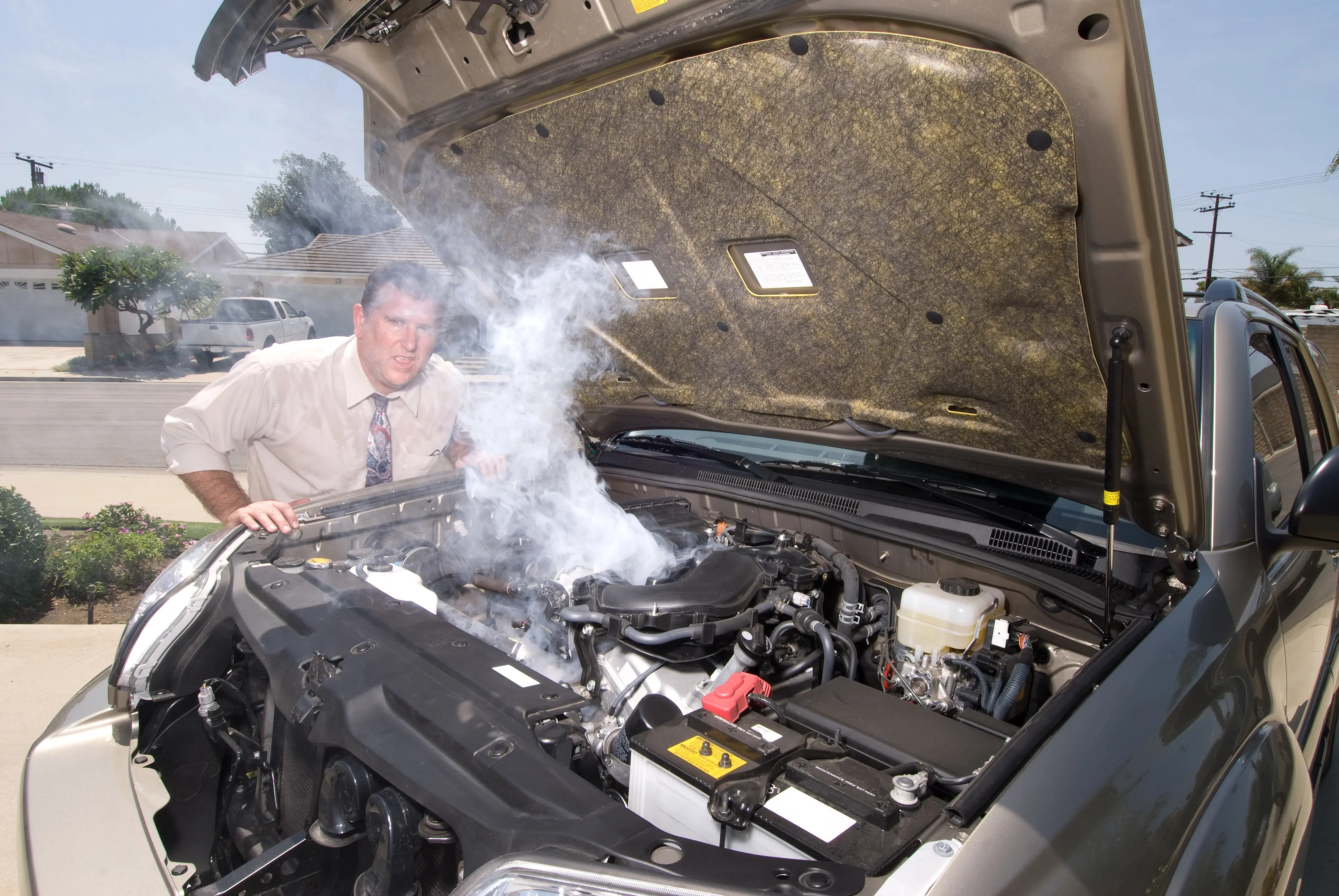It’s the worst.
Car maintenance and repairs create more confusion and distrust among Americans than bills for home repairs or professionals such as lawyers and accountants — even more than medical bills, according to a survey by Jerry.
Most Americans don’t trust car repair shops to treat them fairly. Nearly 9 of 10 say they’ve been overcharged or may have been overcharged at one time, and more than half say they’ve probably paid for a service they didn’t need.
But they don’t know where else to turn for reliable information about what services they need and how much those services should cost. After repair shops, the most frequent source of information is friends and family, who are likely no better informed than they are.
It matters. As with most car-ownership costs, vehicle-repair costs are soaring, rising by about a third since March 2020, forcing many drivers to borrow money and pushing some, primarily younger drivers, into delinquency and default on their debts. A third of Americans worry often or all the time that an unexpected car repair bill will create a serious financial hardship for them and their family.
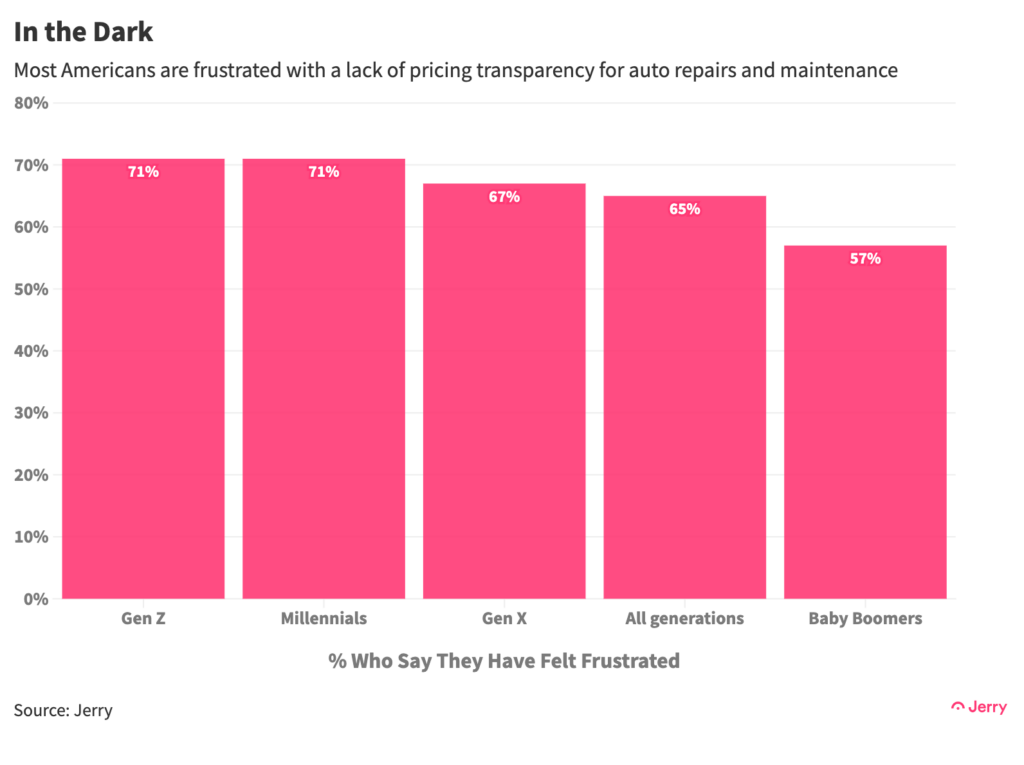
Key Insights
Only 11% of American vehicle owners say they don’t think they’ve ever been overcharged for auto maintenance and repair services. More than half (56%) say they definitely or probably have paid for an auto repair or maintenance service they didn’t need. For Gen Z, the figure is 65% and for Millennials, 64%.
Two thirds (65%) of American vehicle owners say they’ve felt frustrated due to a lack of transparency about what repairs and other services should cost at auto repair and maintenance shops.
Yet 64% also say they do not shop around to get the best price for repair and maintenance services.
When it comes to information about what maintenance their vehicle requires, Americans rely most on dealership service departments and independent auto repair shops, despite their frustrations over a lack of transparency, followed by friends and family. Only 28% conduct research online and only about a quarter (24%) consult an owner’s manual.
In Agreement
Americans are polarized politically but they can agree on at least one thing: They have been or may have been overcharged at a car repair shop. While there’s not much difference of opinion on this between generations, younger drivers — Gen Z and Millennials — were more likely to say so than their counterparts among Gen X and the Baby Boomers.
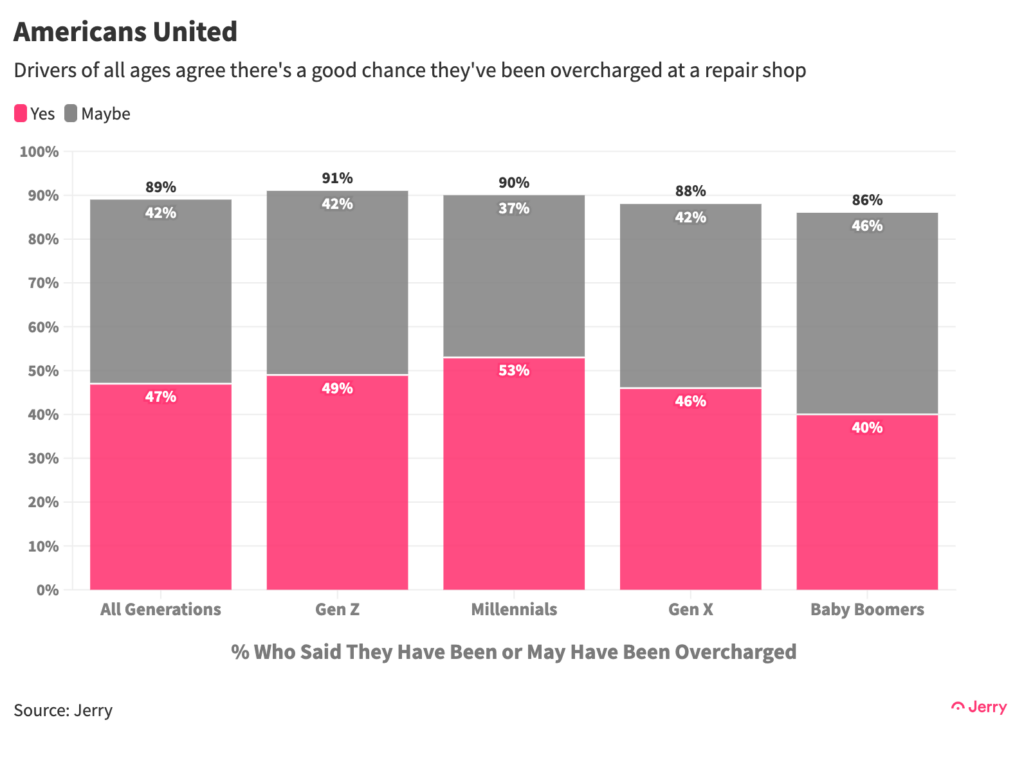
A solid majority also believe they have or probably have paid for a repair or maintenance service they didn’t need. Again, put Gen Z and Millennials down as the most suspicious.
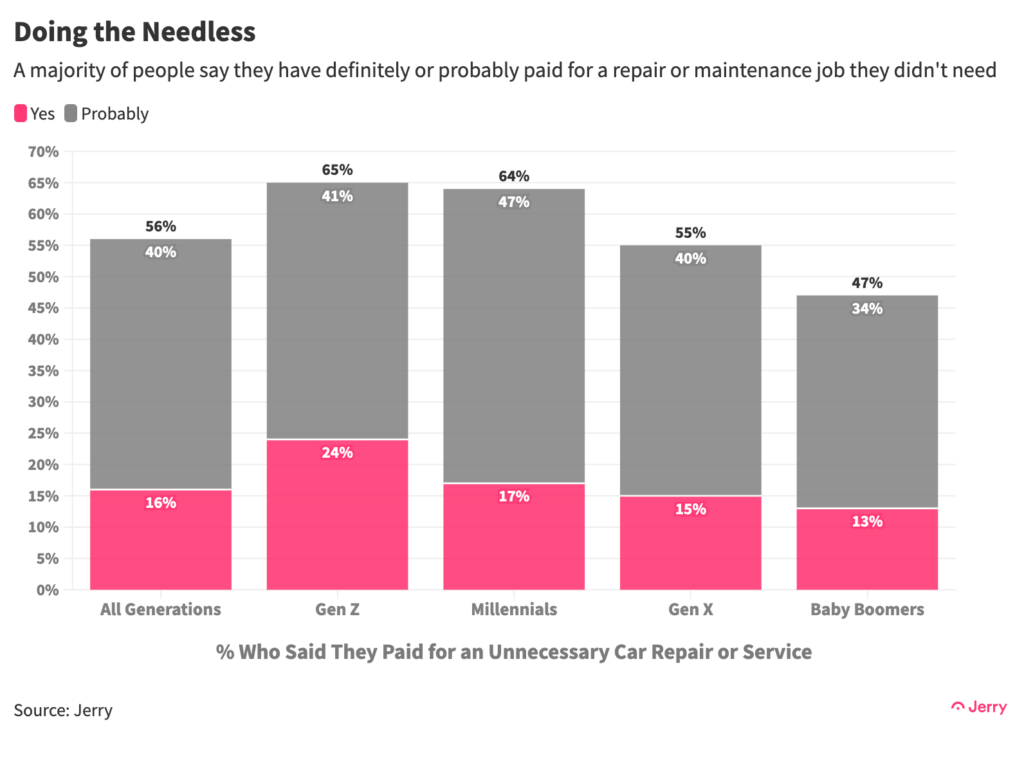
Still, smaller numbers of people shop around when their vehicle needs a repair. Unsurprisingly, Gen Z and Millennials lead the way here, with three times as many members of Gen Z shopping for a better price than Boomers.
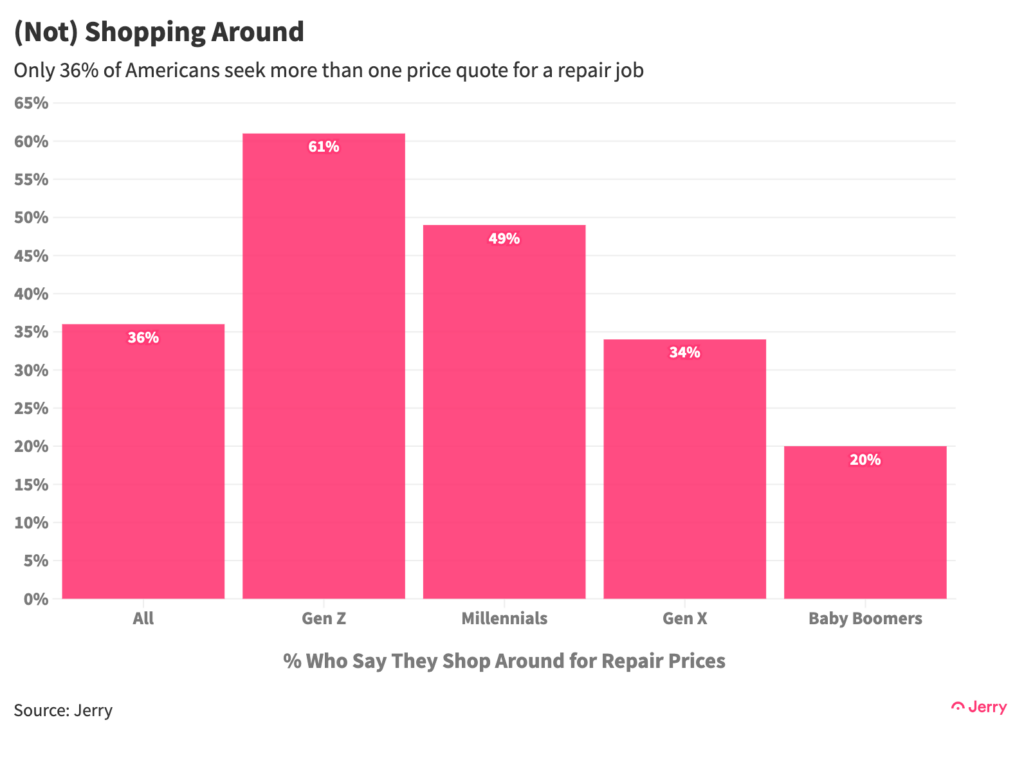
Information Deficit
Overall, despite distrusting them, people still rely most on dealership service departments and independent shops for information about what work needs to be done on their vehicles. This is one reason Jerry has created GarageGuard™, to help drivers diagnose issues with their vehicles, estimate repair prices and recommend trusted service providers.
So far, though, Gen Z and Millennials turn first to their friends and family, with 59% of Gen Z consulting them for maintenance and repair advice, 26 percentage points higher than the overall average. Boomers more frequently consult their owner’s manuals and are least likely to do research online.
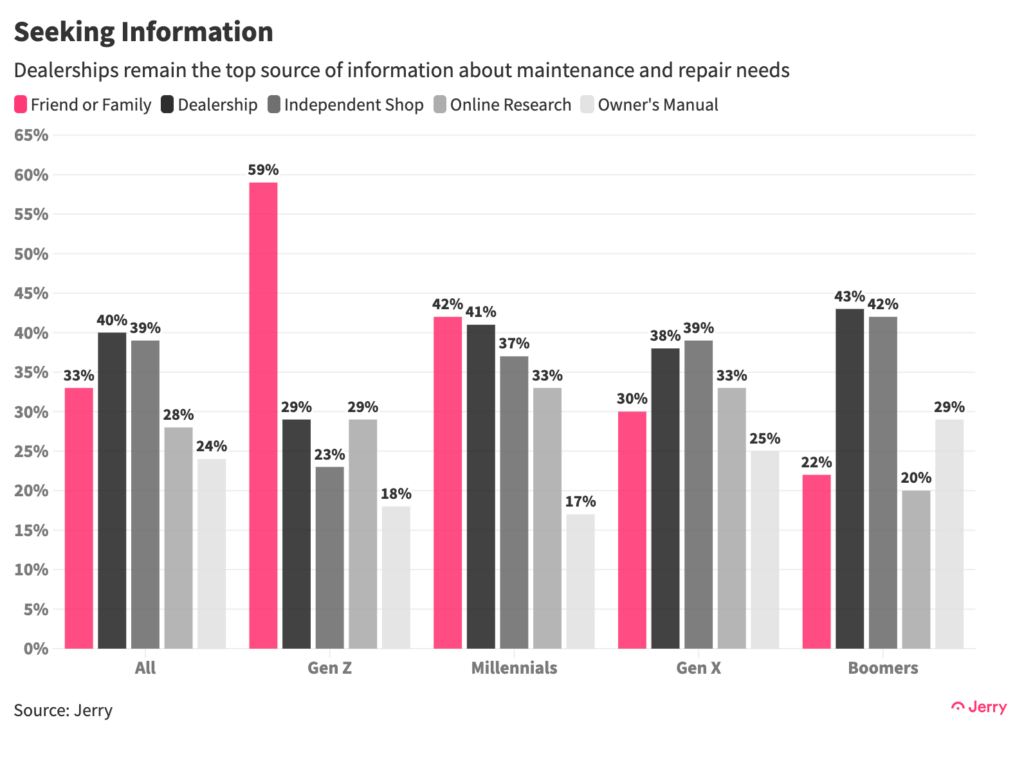
Higher incomes and reliance on dealership service departments appear to be correlated, perhaps because higher-income groups are more likely to purchase new vehicles that are less likely to require repairs, and enjoy service plans and vehicle warranties that require using dealership service departments. Higher-income drivers are also less likely to ask a friend or family member about what work needs to be done.
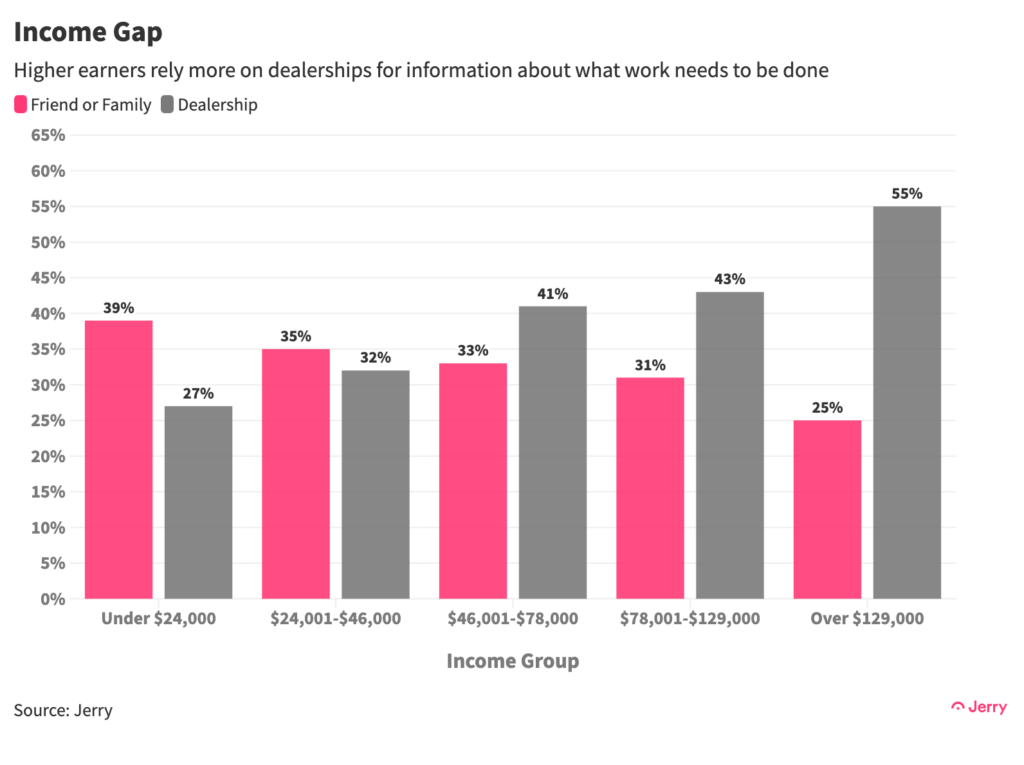
Conclusion
With costs soaring, car repairs are a growing burden for most Americans. More than 80% worry at least sometimes that a sudden bill will bring serious financial hardship on them and their families. This can only be adding to their anxiety and frustration over the lack of pricing transparency on repair and maintenance work and the suspicion most feel toward repair shops, further souring the car ownership experience for many.
Methodology
All survey data is based on a nationally representative survey of 1,431 respondents conducted in May 2023 using Pollfish. Respondents were filtered to include only those aged 16-75 who owned a vehicle and were fully responsible for overseeing and paying for repairs and maintenance on that vehicle. More information about Pollfish and its audiences can be found on its website.

Henry Hoenig previously worked as an economics editor for Bloomberg News and a senior news editor for The Wall Street Journal. His data journalism at Jerry has been featured in outlets including CBS News, Yahoo! Finance, FOX Business, Business Insider, Bankrate, The Motley Fool, AutoWeek, Money.com and more.

